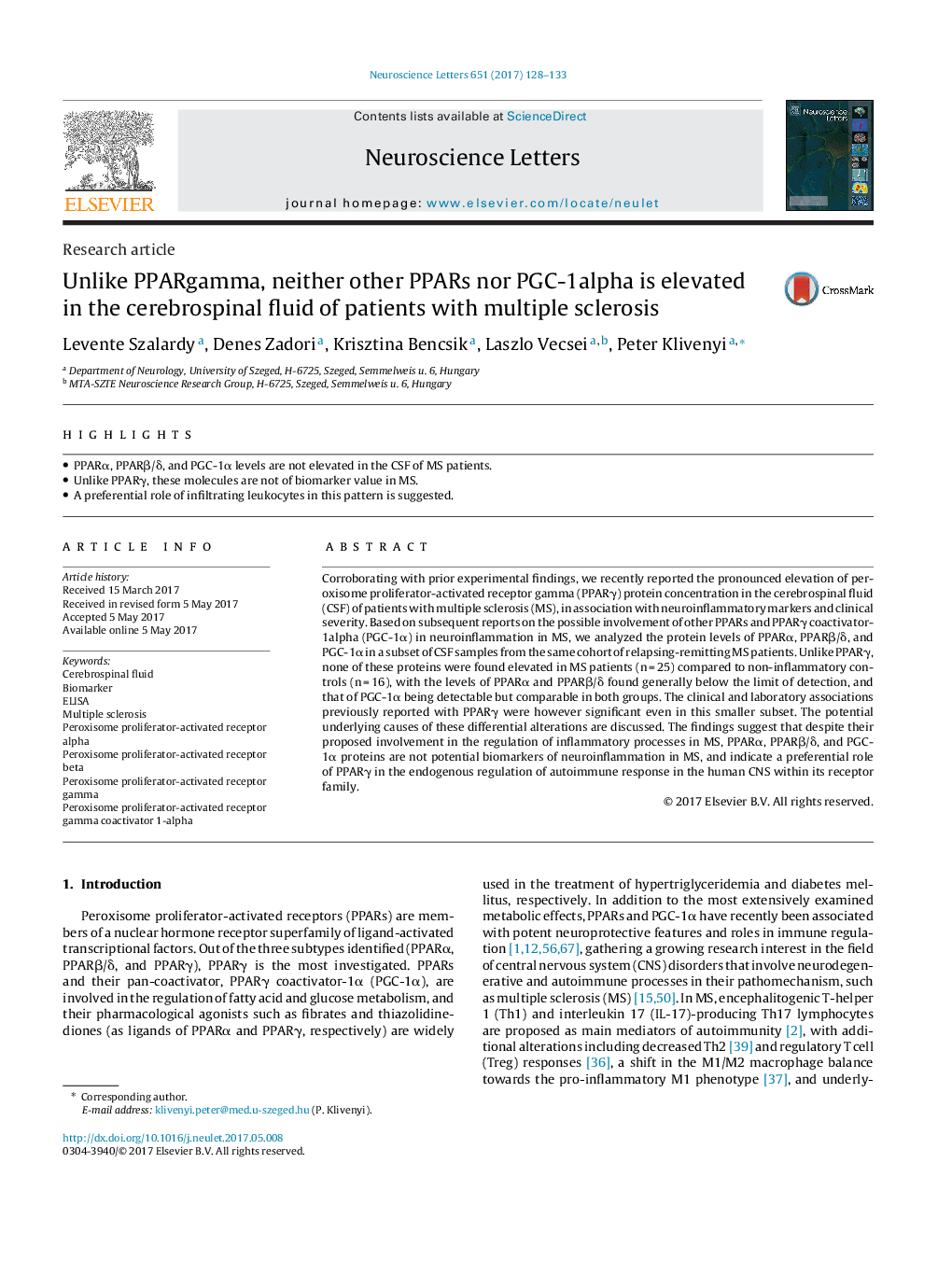| Article ID | Journal | Published Year | Pages | File Type |
|---|---|---|---|---|
| 5738209 | Neuroscience Letters | 2017 | 6 Pages |
â¢PPARα, PPARβ/δ, and PGC-1α levels are not elevated in the CSF of MS patients.â¢Unlike PPARγ, these molecules are not of biomarker value in MS.â¢A preferential role of infiltrating leukocytes in this pattern is suggested.
Corroborating with prior experimental findings, we recently reported the pronounced elevation of peroxisome proliferator-activated receptor gamma (PPARγ) protein concentration in the cerebrospinal fluid (CSF) of patients with multiple sclerosis (MS), in association with neuroinflammatory markers and clinical severity. Based on subsequent reports on the possible involvement of other PPARs and PPARγ coactivator-1alpha (PGC-1α) in neuroinflammation in MS, we analyzed the protein levels of PPARα, PPARβ/δ, and PGC-1α in a subset of CSF samples from the same cohort of relapsing-remitting MS patients. Unlike PPARγ, none of these proteins were found elevated in MS patients (n = 25) compared to non-inflammatory controls (n = 16), with the levels of PPARα and PPARβ/δ found generally below the limit of detection, and that of PGC-1α being detectable but comparable in both groups. The clinical and laboratory associations previously reported with PPARγ were however significant even in this smaller subset. The potential underlying causes of these differential alterations are discussed. The findings suggest that despite their proposed involvement in the regulation of inflammatory processes in MS, PPARα, PPARβ/δ, and PGC-1α proteins are not potential biomarkers of neuroinflammation in MS, and indicate a preferential role of PPARγ in the endogenous regulation of autoimmune response in the human CNS within its receptor family.
